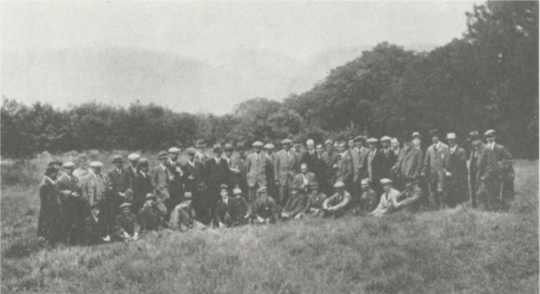The Commonwealth Forestry Conference
The Commonwealth Forestry Conference is an international forum for foresters and all those with an interest in the forestry sector to exchange knowledge and experience and is hosted by different Commonwealth countries at approximately four-yearly intervals. It has been the custom to issue a Declaration or Recommendations at the end of each Conference, addressed to Commonwealth governments, especially to the Commonwealth Heads of Government Meeting.

First Commonwealth Forestry Conference, 1920
The Standing Committee on Commonwealth Forestry (SCCF) was established on the occasion of the Conference in 1923, to provide continuity between one Conference and the next and take follow-up action on Commonwealth Conference recommendations. Each Commonwealth country is represented on the Committee, which is chaired currently by the President of the Commonwealth Forestry Association.
The first CFC took place in the UK in 1920. Discussions in the early Conferences were related to general aspects of forest management but themes have been introduced since 1968 to broaden discussions and focus them on the changing priorities of the forestry sector. At the same time, the programme has evolved with the emphasis in recent years less on plenary sessions and more on discussions in small groups.
What Commonwealth Forestry Owes to the Conferences
- Independent organizations that have been established as a result of the contacts made: Commonwealth Forestry Institute at Oxford, Commonwealth Forestry Bureau, Commonwealth Forestry Association.
- The resolutions passed, at successive conferences.
- A tremendous pool of literature (progress statements, conference proceedings, tour notes, professional papers) that are made freely available to the forestry profession at large, in all countries.
- As government-sponsored events, the Conferences have helped forestry services in every Commonwealth country, to put their particular problems forcibly before the central administrations.



